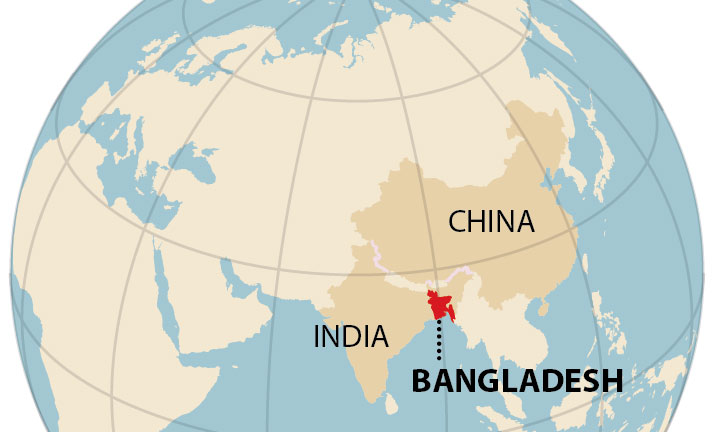IEEFA report: Bangladesh’s power system headed for financial disaster due to overcapacity in coal, LNG power

18 May 2020 (IEEFA Australia) ‒ Bangladesh’s plan for significant coal- and LNG-fired power plant additions will lock the nation into substantial overcapacity, with major financial implications, according to a new study released today by the Institute for Energy Economics and Financial Analysis (IEEFA).
The coronavirus pandemic is currently lowering power demand significantly in Bangladesh, and in markets globally. This is increasing financial stress on Bangladesh’s Power Development Board by reducing revenue whilst capacity payments to idle plants have to be maintained. The pandemic is also delaying China-backed Belt and Road coal power projects in Bangladesh.
Author of the study Simon Nicholas, energy finance analyst with IEEFA, says COVID-19’s impact will mean long-term power demand will also be lower than forecast.
“Based on current plans for coal- and LNG-fired power additions, we calculate that Bangladesh will have the capacity to generate 58% more power than the nation needs by 2030, based on our forecasts of power demand growth and taking into account the economic impact of COVID-19,” says Nicholas.
Bangladesh already has major power plant overcapacity with only 43% capacity utilization of existing power plants in fiscal year 2018-19.
Significant capacity payments to idle power plants are helping drive the need for increasing government subsidies to the Power Development Board to cover its financial losses. In fiscal year 2018-19, the government subsidy to the Board rose again to reach Tk80bn (US$936m). It was Tk45bn (US$530m) in the previous financial year.
“A long-term switch from cheap domestic gas towards more expensive imported coal and liquefied natural gas (LNG), combined with the severe, long-term power overcapacity Bangladesh is on course for, is likely to see government subsidies continue to rise,” says Nicholas.
Power tariffs for consumers can also be expected to increase, according to the report.
The economic impact of COVID-19 means such huge subsidies are going to be harder to maintain as the government bails out flailing industries.
Nicholas suggests large fleets of big coal and LNG plants are increasingly less appropriate to meet lower-than-expected demand growth in developing nations. Egypt recently shelved a China-backed 6.6GW coal plant proposal due to concerns about overcapacity and a preference for renewable energy.
Report co-author Sara Jane Ahmed highlights that Indonesia provides important lessons for Bangladesh, as it is already suffering from the financial impacts of an overreliance on coal power.
“Indonesia’s PLN – the state-owned power utility – has seen its over-commitment to coal power lead to a rapid escalation in government subsidies which reached an enormous US$5bn in 2018,” says Ahmed.
Ahmed says Indonesia’s power development plan includes an overestimated power demand growth forecast for 2019-2028.
“Such mis-forecasts compound over time and are the basis for planning too much power capacity development, resulting in overcapacity, higher capacity payments, larger subsidies, and increases in tariffs,” says Ahmed.
“Bangladesh needs to change direction or head down the same road as Indonesia towards a financial crisis within its power system.”
The report authors suggest Bangladesh needs to consider regaining control of its power sector by renegotiating coal and LNG plants to more appropriate, modular renewable energy – without capacity payments – and grid investments to meet lower demand growth. This would reduce the overall system cost while improving domestic energy security and resilience.
More recently, the Government of Bangladesh is looking to renegotiate with project proponents to replace a 350MW coal plant with grid upgrades to reduce losses in the rural electricity system.
“The amount of land suitable for renewables in Bangladesh is likely to be more than previously assumed,” says Nicholas.
However, some tough choices over land use may have to made if Bangladesh is to avoid entrenching a power system dominated by expensive, imported coal and LNG with higher power tariffs and government subsidies.
“The COVID-19 induced delay to coal power projects gives Bangladesh an opportunity to reset energy development policy and redirect resources to support economic fundamentals and energy price stability to enable the realization of Vision 2041,” said Nicholas.
Read the report: Bangladesh Power Review: Overcapacity, Capacity Payments, Subsidies and Tariffs Are Set to Rise Even Faster
Media Contact: Kate Finlayson ([email protected]) +61 418 254 237
Author Contacts: Simon Nicholas ([email protected]) and Sara Jane Ahmed ([email protected])
About IEEFA: The Institute for Energy Economics and Financial Analysis (IEEFA) examines issues related to energy markets, trends and policies. The Institute’s mission is to accelerate the transition to a diverse, sustainable and profitable energy economy.













